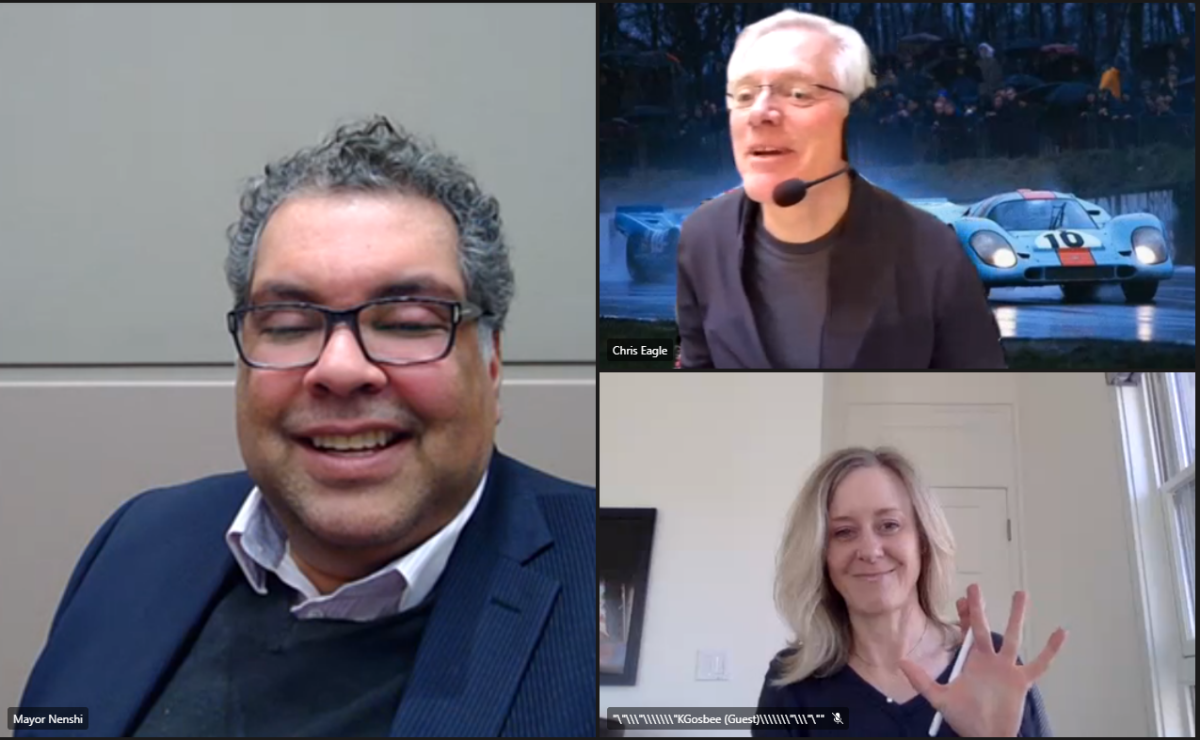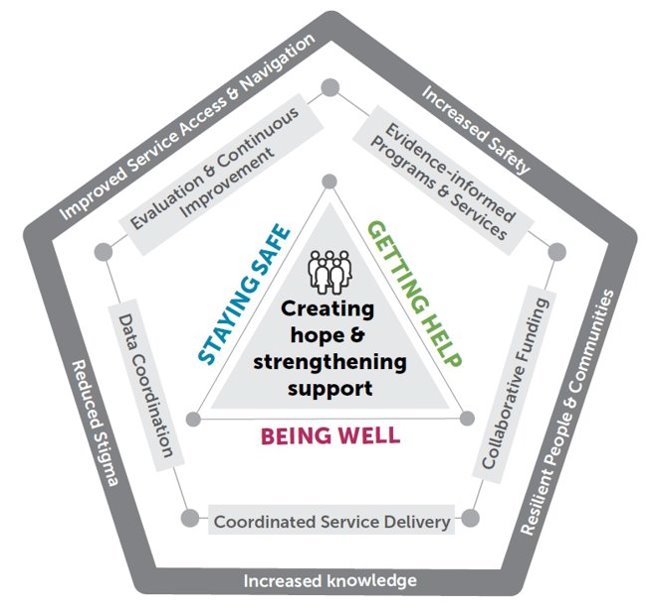ByAdam Toy Global NewsPosted March 16, 2021 7:18 pm

Karen Gosbee’s husband George died by suicide in 2017.
Since then, she joined the City of Calgary’s stewardship group working on a community plan for mental health and addictions, and wrote a book.
“A Perfect Nightmare” was published last October. The culmination of the stewardship group’s work — the Calgary Mental Health and Addiction Community Strategy and Action Plan — got the first look by city councillors on Tuesday.
“I was drawn to this work through my own experience with mental health and addiction as a daughter, a sister, a friend, a wife and a mother,” Gosbee told a city committee.
The plan has three main themes: being well, getting help and staying safe.
Mayor Naheed Nenshi said the trio of themes is what the city needs to improve on.
“The first is being well, and that’s talking about mental health at home, at work, at school, in your faith communities and ensuring that we’re protecting people’s mental health,” Nenshi said.
“The second is getting help where, when and how you need it, so ensuring that when you have a challenge, you know where to go, the system is available for you, the services that you need are there and you are able to access them.
“The third is being safe, making sure our communities are safe and that people not just experiencing crisis but everyone feels safe in the community and feels supported through their mental health journey.”
Gosbee said it’s also about reducing shame and stigma around mental health to enable Calgarians to get the help they need in a timely manner.

“This city report talks about connecting the dots,” Gosbee said. “And so it’s from the user perspective, whether you’re a person with mental illness or addiction or just want wellness in particular.
The plan still requires approval from council, something the mayor anticipates will happen after the committee unanimously endorsed what he called “Canada’s first community-based mental health strategy and action plan.”
With funding in hand from a 2018 council decision, implementation is the next step. Nenshi said the city would start work as a corporate-wide initiative before convening with their partners to put leadership and implementation plans in place.
“The good news is that, usually, when something like this happens, you get a strategy, then you have to wait for budget and you have to find some money,” the mayor said. “Then you have to move forward. But we’ll be able to hit the ground running.”

Nenshi said $9 million of the original $25 million from 2018 will help seed future work, and the city will be able to leverage community funding from foundations and philanthropists as the plan continues its work through 2023.
“Ultimately, the very big money — which has to do with funding the services, the treatment beds and so on — will be from the province,” the mayor said. “The good news is that we believe our strategy allows us to deliver services more efficiently and get more bang for our buck.”
Unexpected pandemic effects
Dr. Chris Eagle, who co-chaired the stewardship group with Gosbee, said the plan will lead to a “culture change” of how organizations work together to prevent people with mental health concerns from falling through the cracks.
The coronavirus pandemic has had a serendipitous benefit to their work.
Facing the decision to stop the work due to disruptions to stakeholders like Alberta Health Services, school boards, non-profits and others, the group decided to go ahead “willfully.”
“What that did was actually improve the strategy,” Eagle said. “And it also improved the working environment for the strategy.”
Awareness of mental health during the pandemic and the effects of isolation was the improvement to the “working environment.”
“We really finished up in a better position because of COVID — it’s kind of ironic to say that,” Eagle said. “But today, no one doubts that everybody in the community is impacted by mental health issues.
“I’m not sure that was the case a year ago.”
LINK: https://globalnews.ca/news/7700717/coronavirus-pandemic-calgary-mental-health-addiction-strategy/
